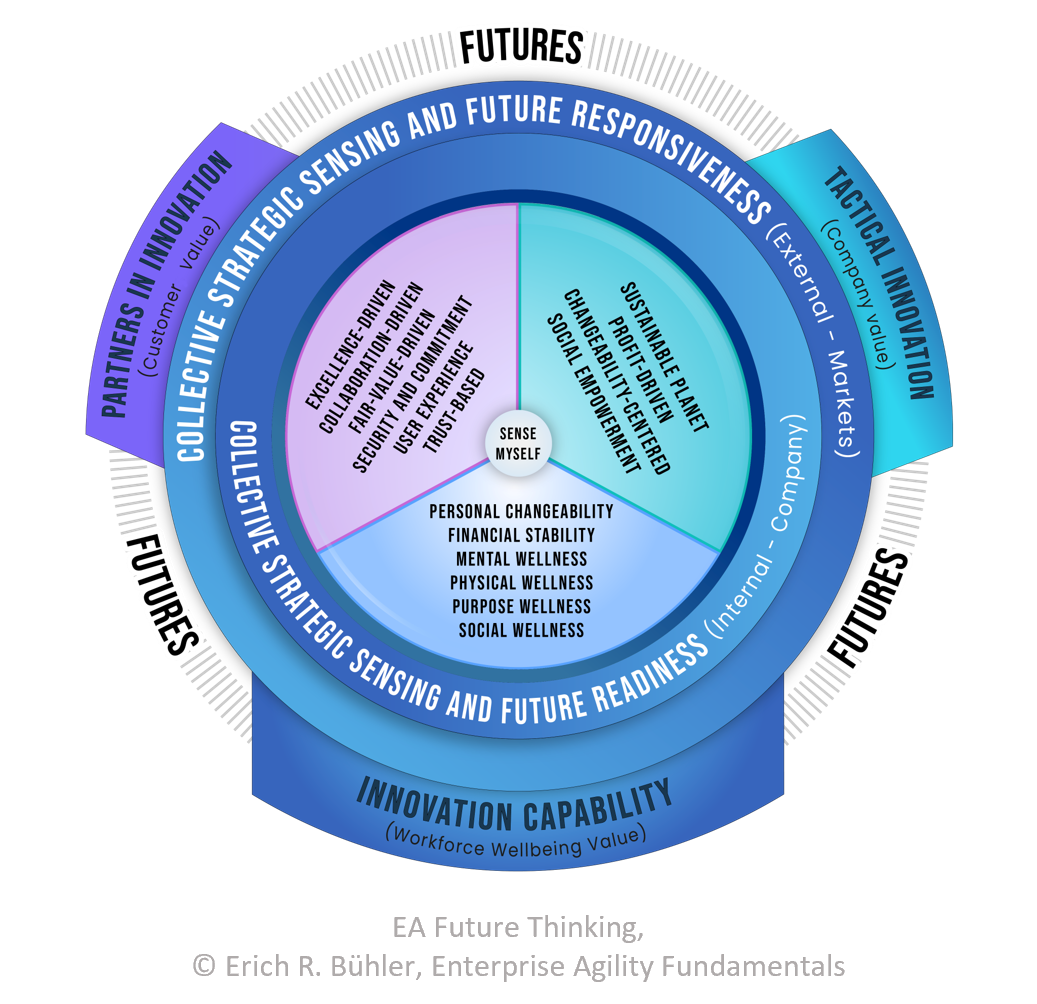What is Future Thinking in TVC and Why is it so Important for Organizations Facing Accelerated Change?
Future Thinking is an essential component of Enterprise Agility, developed by the Enterprise Agility University, that helps organizations navigate accelerated change and uncertainty. Rather than relying on linear projections of the present, Future Thinking expands strategic foresight and flexibility to adapt.

As experienced change consultants, we've seen how many organizations struggle to look beyond the status quo and consider disruptive forces or opportunities outside their current business model. However, in today's rapidly evolving environment, clinging too tightly to "what we know" can prevent companies from exploring new horizons and capitalizing on emerging trends.
The human brain is wired for efficiency and often resists change, favoring the familiar over the unknown. Biases like temporal discounting also make it challenging to prioritize long-term innovation over short-term rewards. But Future Thinking exercises parts of the brain responsible for higher-level analysis, helping people overcome limitations hardwired into our psychology. It enhances strategic adaptability, which is the ability to continuously sense signals, re-evaluate assumptions, and realign strategies.
By adopting a Future Thinking mindset, organizations can detect weak signals of disruption sooner and imagine bolder possibilities beyond incremental improvements. The frameworks we've developed at EAU guide companies through exercises to challenge prevailing assumptions and consider a wider range of market scenarios and strategic responses.
This approach builds workforce capabilities to anticipate second and third-order consequences, make connections across domains, and envision new products or business models. Future Thinking also provides indicators, metrics (called Futures) and AI tools to help companies continuously evaluate signals in the present that may shape the future.
In essence, Future Thinking expands perception, cognition and strategic foresight to go beyond what we know, which is critical for organizations facing exponential change. While we cannot perfectly predict the future, by strengthening our ability to flexibly respond, we can help shape it.
For more detailed information about them, check Enterprise Agility Fundamentals, Chapter 9.
